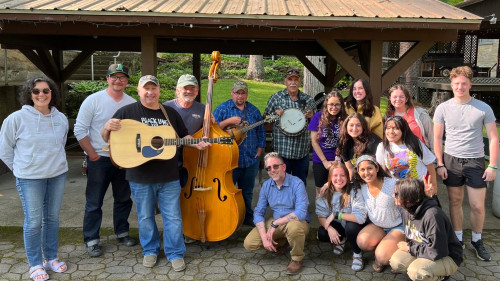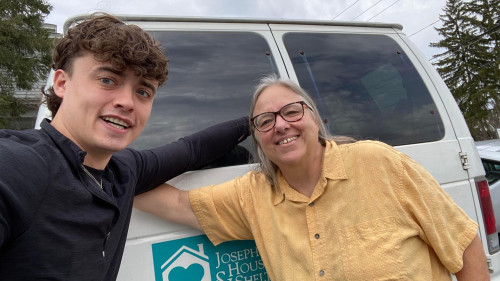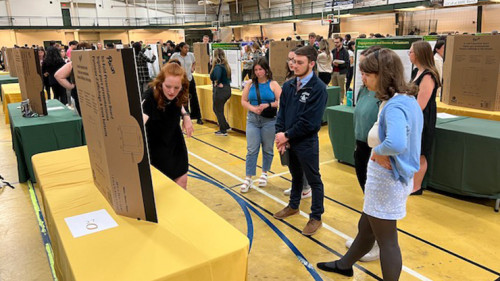
This is it. Election Day is Tuesday. Voting has already been open for mail-in absentee ballots or in-person early voting, but November 3 is the deadline to have your absentee ballot postmarked or to get to the polls in person to decide who will represent you on your town board, state legislature, Congress and in the White House.
Siena students and faculty led a major on-campus voter registration drive this fall, with the goal of getting as many eligible voters signed up as possible.
“Voter registration and turnout among college students has been incredibly high this year,” said Sami DeRagon ’22. “Gen Z is more politically aware than Millennials because of what we’ve seen at such young age – the Parkland school shooting, the 2016 presidential election, Black Lives Matter. Our political education has been so intense.”
Daniel Lewis, Ph.D., associate professor of political science and department chair, said it is estimated that voter turnout this year will be the highest it’s been since 1960, with an estimated 65 percent of Americans voting. More than half the number who voted in 2016 have already voted in 2020.
Social media political content, news coverage and political advertising has been ramped up considerably from past elections.
“It made our job that much easier to get Siena students registered,” said DeRagon. “There’s so much more awareness about voting and the issues.”
This is the first time early in-person voting for president has been allowed in New York. This extended poll time (being offered in other states as well) will allow for more people to vote, and to do it while socially distancing.
More voters than ever this year are voting absentee as well, a safer option for college students who are living away from their home districts.
Abby Hall ’22 lives an hour and half away from campus, so with the ongoing pandemic she opted to take the safer route and vote absentee.
“As soon as my ballot came in on October 12th, I immediately filled it out and mailed it back. This was my first time voting in a presidential election and with so much on the line, I wanted to be sure my ballot would be received as soon as possible,” she said. “It is so important for my generation to vote because our future could be at stake and we need to have our voices heard. Voting is the best way to make change."
You may have questions about voting, especially if this is your first time casting a ballot. This Q & A section has been informed through a conversation with Dr. Lewis and DeRagon:
Q. How can I vote?
A. Two ways: mailing in an absentee ballot or in person at the polls. If you have an absentee ballot, it must be postmarked by Tuesday, Nov. 3 and received by Tuesday, Nov. 10. If you live close to campus, you can vote in person in your home district, either early or on Election Day. You must already be registered to vote.
Q. If I’m voting in person, where do I go?
A. Call the Board of Elections in your home county or go to vote.org to check. Your polling place is based on your home address. Please note that early voting locations are usually different from Election Day places.
Q. When is the last day for early voting in New York?
A. Sunday, November 1.
Q. Do I have to show ID when I show up to vote?
A. In New York, no. Simply give your name and home address to the volunteer at the polls and you will be checked in.
Q. Is it too late to request an absentee ballot?
A. Yes, that deadline has passed in New York.
Q. I already have my absentee ballot. When is it due?
A. Your absentee ballot must be postmarked by November 3 and received by November 10, or hand-delivered to your local Board of Elections by November 3 for your vote to be counted.
Q. Is it too late to register to vote?
A. The deadline to register has passed in New York, but you can still register when you vote in some states like Connecticut and Vermont. Of course, you can still register for next year! Check your home state at vote.org for information.
Q. Do I have to re-register to vote every year?
A. No. Once you’re registered, you’re registered. You can update your information, though, such as a new address or political party affiliation.
Q. There are a lot of issues to consider when choosing a candidate – the economy, education, the environment, health care and more. Where is a good place to learn where candidates stand?
A. The League of Women Voters hosts an excellent website called vote411.org to learn about what the candidates support, and where and when you can vote. The information is up to date and impartial. Candidates in state and national races usually have their own websites with details on their positions.
Q. I know who’s running for President, but not about all the other races. Do I have to vote for them?
A. Believe it or not, decisions made by your town or city council can have more impact on your daily life than those made nationally. Issues like road repair, local business development, school funding, crime and more are dealt with by your local reps.
Q. I’m disillusioned by the whole system. I don’t even feel like voting.
A. If you’re disillusioned, it’s because your voice isn’t being heard. So vote.

